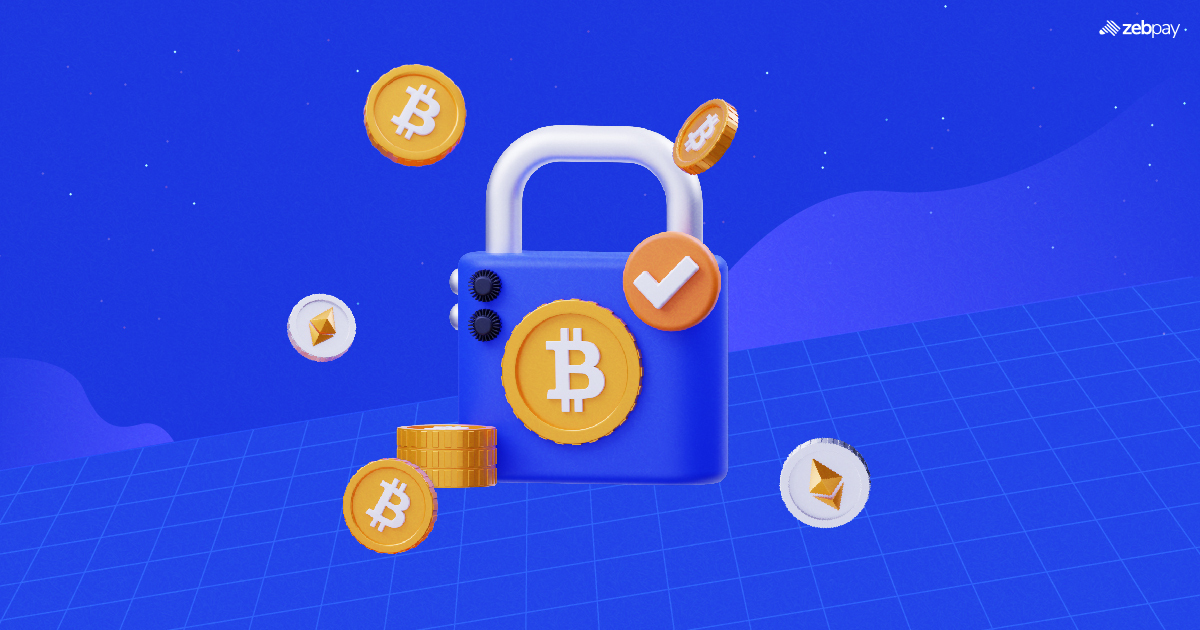Many consider crypto assets to be the new gold rush, with high risk and high reward at the press of a button. But where there is gold, there are also bandits. Digital outlaws like hackers and scammers are always on the lookout for investors they can exploit and defraud. So, whether you’re a seasoned investor or just getting started, read on to learn how to protect your crypto and secure your financial future.
Understanding the Risks
Risks to your crypto investments can present themselves in many different ways. While some may be software bugs, others can be caused by human error.
Common crypto Vulnerabilities
- Hacking: Crypto exchanges and wallets, like any services, are vulnerable to hacks. This may result in the loss of assets and theft of funds from your account.
- Scams: There are many scams associated with crypto assets. Some may include fake crypto airdrops and ICOs, while others may be Ponzi schemes.
- Phishing attacks: Phishing attacks use false means to obtain your personal information, which can be used to steal your funds.
- Social engineering: Social engineering is the process of manipulating and tricking others into sharing information with you. These attacks can occur in the crypto world too, and your funds can be stolen.
- Forks: Forks in a crypto’s blockchain can create vulnerabilities, as users may not be aware of which fork is the legitimate one and could lose funds by investing in the wrong one.
How Hackers Exploit These Vulnerabilities?
Hackers can use vulnerabilities in the code of wallets and crypto websites. This can bring down the platform, or even siphon funds from your account.
But the most common lapses are scams and other such attacks. Malicious actors can create fake websites to advertise a new crypto project. If you connect your wallet to such websites, it gives them access to your account and all your funds.
Crypto social engineering attacks can be a more targeted method of this. Instead of a mass email, they may use individually customised communication. This may make the project seem more trustworthy, but just like phishing, it leads to the theft of funds.
Protecting Your Investments

Best Practices for Securing Your crypto
- Crypto two-factor authentication: Two-factor authentication adds an extra layer of security by requiring a code and a password to access your account. This can help prevent unauthorized access even if your password is stolen.
- Crypto password management: Use a unique, strong password for each of your accounts. Avoid using easily guessable passwords or ones that you have used for other accounts. If you have a single password, then a data breach in any one website means your credentials everywhere are compromised.
- Keep your software updated: Keep your operating system, web browser and any crypto software up to date to ensure you have the latest security protections.
- Be wary of crypto phishing scams: Be cautious of random requests for information. Verify whether an identity is genuine before sharing sensitive information, and do not click on links in emails or messages from unknown sources.
- Diversify your investments: Diversifying your investments across crypto assets and exchanges can minimize the risk of losing all your funds. Risk is thus spread over many different platforms.
Top crypto Security Solutions
- Hardware Wallets: A hardware wallet is a physical device that stores your crypto keys securely. This keeps them disconnected from the internet when you do not require them. Examples include offerings from Ledger, like the Nano S.
- Crypto Multi-signature wallets: Multi-signature wallets require several confirmations to execute transactions, adding an extra layer of security. For example, a wallet might require two or three private keys to sign a transaction.
- Blockchain analysis tools: Blockchain analysis tools can help you identify suspicious transactions and monitor your addresses for security breaches. This is useful especially if you make many transactions or trades in a single day.
- Security audits: Security audits by third parties can help identify software vulnerabilities. This can help you analyze your crypto exchange, wallet, or smart contract code, allowing you to take steps to address them.
How to Recover from a crypto Hack?
Crypto hacks can be a stressful and confusing time. But there are some steps you can keep in mind to protect yourself from further losses.
Firstly, it is crucial to disable or stop activity on any account that has been compromised. This prevents hackers from using your funds and siphoning your crypto to another wallet. Next, contact the customer support of your crypto exchange or wallet provider. They can help you report the incident and recover your funds.
You should also secure your other accounts, including changing passwords and implementing 2FA. Finally, report the hack and any subsequent thefts to law enforcement.
Staying Ahead of the Curve
Staying informed is the first step towards financial security. Stay updated about the latest security risks and best practices for securing your crypto. This can help you be ahead of potential threats and take action to protect your funds.
To do this, you can follow the projects you invest in on social media, along with popular newsletters and blogs in the crypto space. This provides you with a general overview of developments to help you decide your future actions.
Conclusion: The Importance of Protecting Your crypto Investments
Crypto investments are extremely popular and lucrative. This inevitably attracts hackers and criminals looking to steal your hard-earned money. They can do this through platform hacks, scams and phishing attacks. To protect yourself, be sure to implement proper security practices and never share your details with individuals online. Follow developments in the crypto industry and keep yourself updated on the latest security practices.
You can read more about Web 3.0, Crypto Security and blockchain on ZebPay blogs. Join the millions already using ZebPay.
FAQs on How to Keep Your crypto Safe
How to Secure your crypto?
Some of the crypto security best practices include using a hardware wallet, implementing two factor authentication and never sharing your private key with anyone. These are the simplest yet most effective ways on how to keep your crypto safe.
How to Prevent crypto Hacks?
As an individual, it may be difficult to prevent some forms of hacks as they rely on your crypto wallet security. Alternatively, if the crypto exchange security is not robust, even they may be hacked. Be on the lookout for third party security audits that can help you determine if your wallet and exchange are secure.
What is two-factor authentication and why is it important?
Two-factor authentication adds an extra layer of security by requiring a code and a password to access your account. It’s important because it can help prevent unauthorized access even if your password is stolen.
How can I prevent scams when investing in crypto?
You can prevent scams when investing in crypto through careful analysis of the project. Research the project and team, verify the legitimacy of any ICO or exchange and avoid suspicious requests for information.











